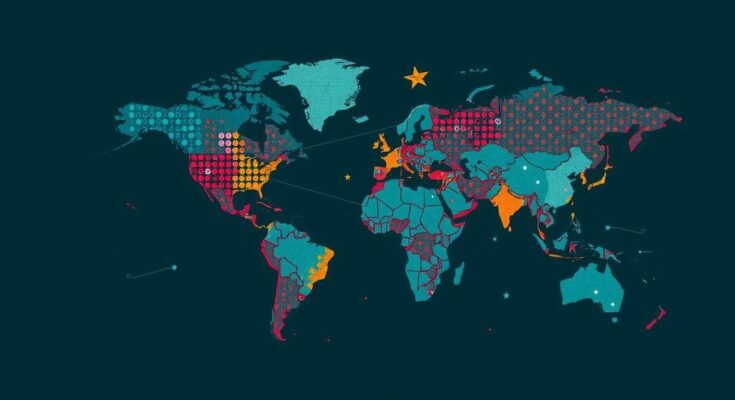Despite claims of deglobalization, globalization remains robust, driven significantly by unhealthy factors like corporate tax avoidance and China’s reliance on exports. This article delves into the factors sustaining globalization, the role of U.S. tax policies, and the necessary reforms to achieve a healthier global economy. The intricacies of international trade dynamics emphasize the importance of balancing economic relationships, particularly with China, to create a sustainable future.
Globalization is alive and thriving, despite predictions of its demise. However, this resilience is not something to celebrate. Many aspects fueling current globalization are unhealthy, such as large-scale corporate tax avoidance and China’s overdependence on exports, which has skewed the balance of global trade. China’s export growth far surpasses the overall increase in global trade, highlighting this unsustainable trend. The arguments for the resilience of globalization often center around low tariffs despite a shift in political rhetoric. While proposed tariffs may seem restrictive, they don’t significantly impact global trade when other countries maintain zero tariffs on imports. The failure to ratify agreements like the Trans-Pacific Partnership reflects political motives more than economic ones, and the U.S. continues to import heavily from Asia. Additionally, the Tax Cuts and Jobs Act allowed U.S. firms to maintain their offshoring practices, contributing to sustained levels of globalization. For instance, U.S. pharmaceutical companies experienced a surge in imports and profits since TCJA’s enactment. Although these companies reported immense profits globally, they paid minimal federal taxes, showcasing a flaw in the U.S. tax structure that incentivizes production outside the country. Ironically, China’s economic policies, initially perceived as damaging to trade relations, are now driving global trade. Recent statistics demonstrate that China’s exports and trade surpluses have risen sharply as its economy grapples with domestic challenges. Disparities in consumption and investment continue to influence global economic interdependence, bridging nations through unbalanced supply and demand. To promote healthier globalization, amendments to the U.S. tax code must prioritize domestic production. Harmonizing industrial policies across the U.S. and European nations could alleviate trade complications stemming from competition with China. Furthermore, collaborative measures against China’s industrial policies should be pursued while pressing for necessary economic reforms to rectify systemic imbalances. Shifting the focus of IMF recommendations toward a more balanced Chinese economy would aid global recovery. A consensus among G7 nations and their allies is vital to challenge the unsustainable export-driven model, ensuring that China adapts to a more equitable trading partnership. The ongoing discussion transcends mere policy; it redefines the essence of globalization itself, shaping a world drawn closer yet more selectively integrated amid the complexities of economic challenges.
In exploring the dynamics of globalization, it is crucial to understand its current state against the backdrop of worldwide economic shifts. As nations grapple with trade imbalances and unsteady economic policies, China’s influence looms large over global trade. The underlying causes of globalization’s persistence stem from mounting pressures on multinational corporations and the implications of political decisions that further entrench these issues. Analyzing these elements unveils the true nature of globalization today—one that is undeniably challenged yet surprisingly persistent.
In summary, globalization’s resilience is complex and marked by unhealthy dynamics. The undue reliance on Chinese exports, combined with corporate structures that favor tax avoidance, exacerbates economic disparities. To cultivate a more balanced globalization, significant reforms in U.S. tax policies and international collaboration among allies are essential. The future of global trade hinges on how well nations adapt to the intertwined challenges of economic integration and external pressures.
Original Source: www.cfr.org



